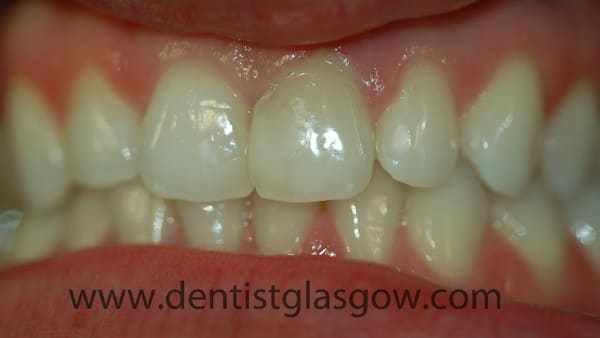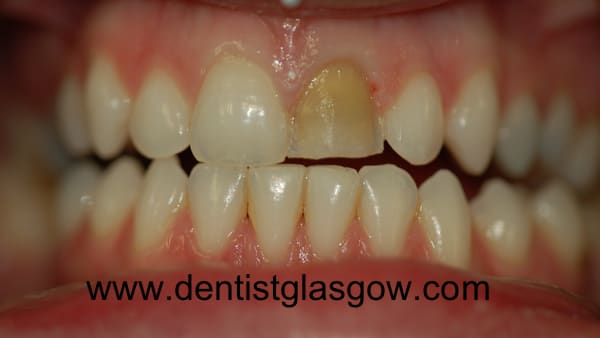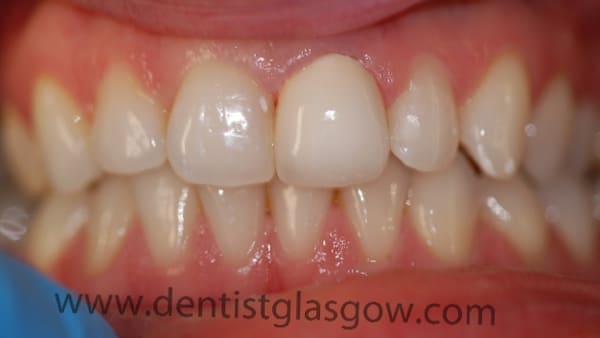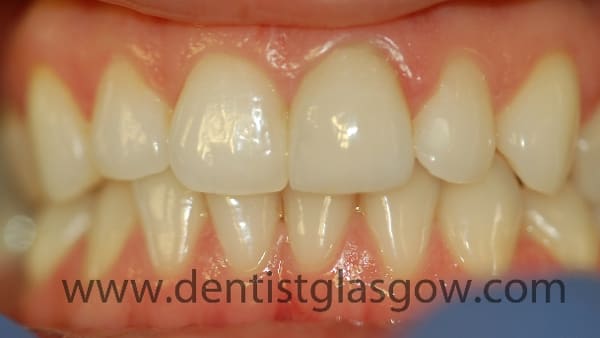This incisor porcelain crown treatment is one of the most challenging in cosmetic dentistry because the front two upper incisors are scrutinised far more than any other teeth in terms of their cosmetic value.
The substructure of this old crown which had turned dark beneath the original porcelain, means that blocking the darkness of the tooth with opaque porcelain becomes more difficult.
To achieve this and maintain the natural translucency of the adjacent incisor is the ultimate challenge in dental ceramics for any technician and dentist team. Fortunately we have very good dental laboratory partners who rise to this sort of task.
These are the before photograph as well as the photograph of the teeth after the previous crown was removed.


Final incisor porcelain crown
This is a picture of the temporary crown and the final porcelain ceramic metal-free crown.


As you can see a very natural result was achieved in spite of the level of darkness beneath.
The patient was happy with the new incisor porcelain crown and due to the level of porcelain opacity, the problem is unlikely to come back.
This can be considered a real success and if the patient maintains good gum health – our dental hygienist has already passed on a wealth of advice – this porcelain crown may well last a lifetime!
Do you have a dark front tooth?
There is no need to put up with a solitary dark or discoloured tooth, particularly when it is one that is so obvious.
Nor is there any need to put up with old dental work which no longer suffices. We are often asked to work on teeth which have been badly repaired elsewhere and at an earlier time.
Phone the Glasgow practice to arrange a free initial consultation to discuss your different options. There is no obligation, we’ll be glad to hear from you.
Also, if this kind of cometic dental procedure is of interest you and you think it may be the answer to your own dental situation, read more about porcelain crowns and how they can cover cracked or discoloured teeth.
Note: the dentists at Appletree Dental Care are all registered with the General Dental Council which sets and maintains the standards for dental patients in the UK